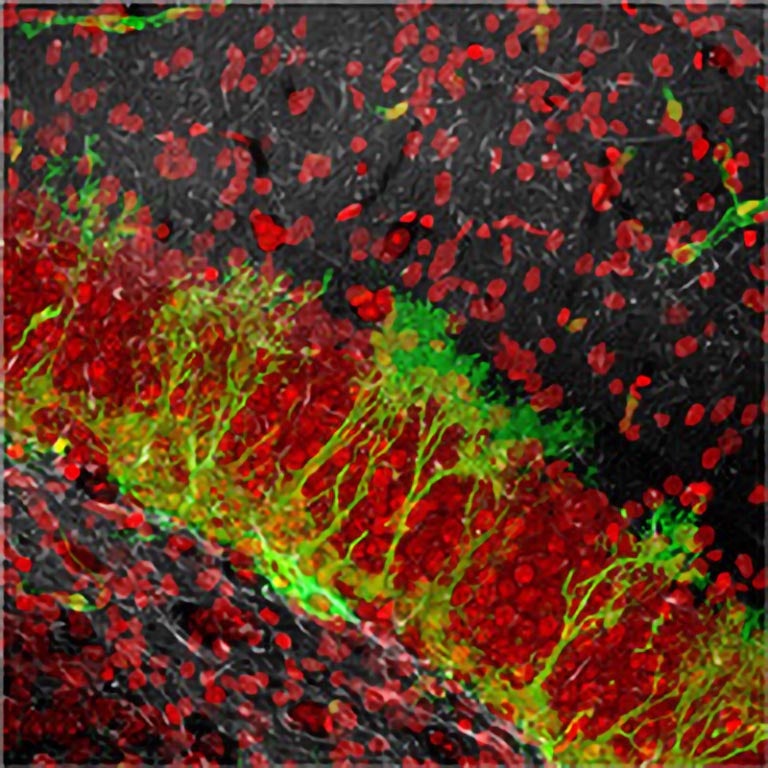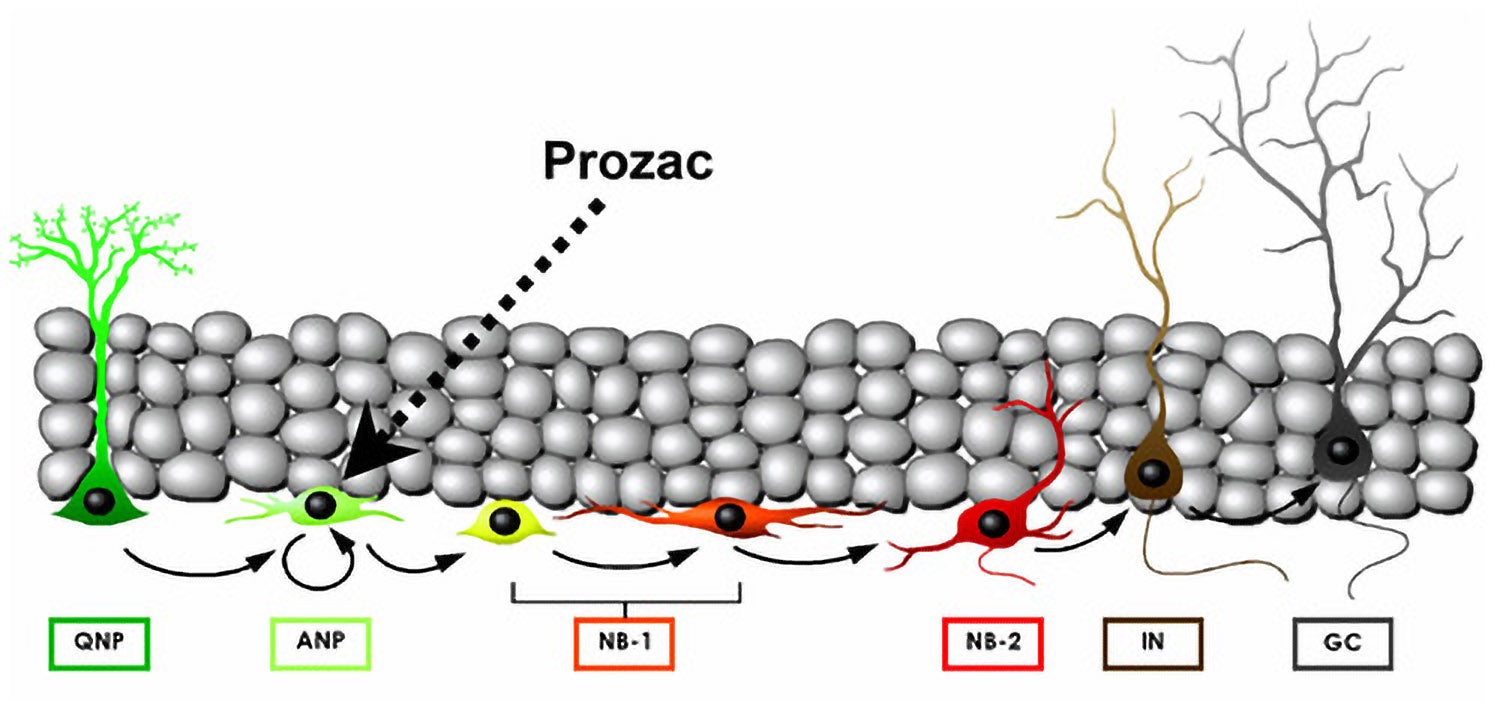Researchers at Cold Spring Harbor Laboratory on Long Island have identified which among several different kinds of cells in the brain is the chief target of the widely prescribed antidepressant Prozac. This discovery might enable a new generation of more specific treatments for depression, with fewer side effects, to be developed.

The findings also lay the foundation for many studies of the factors that control how, when, and where new neurons are generated from stem cells in the brain. Such work could eventually lead to cell replacement therapies for neurodegenerative and other brain disorders including Alzheimer’s and Parkinson’s disease.
It has been known for some years that Prozac (fluoxetine) is likely to relieve the symptoms of depression by somehow causing more neurons to be present in a particular region of the brain—the “dentate gyrus.” But the origins of these neurons, and how Prozac promotes their existence, have been a mystery until now.
By profiling the telltale marker proteins produced by different kinds of cells in the brains of adult mice, the researchers first defined discrete steps in the complex process, called neurogenesis, that converts unspecialized stem cells into mature, specialized neurons.
Next, knowing that Prozac treatment somehow increases the number of neurons in the brain, the researchers tested which step in the neurogenesis pathway might be stimulated by Prozac. They found that Prozac treatment specifically stimulates the generation of a kind of cells they dubbed “amplifying neural progenitors” or ANPs—the second step in the neurogenesis pathway from stem cells to mature neurons.

The study is published in the Proceedings of the National Academy of Sciences . It was led by Grigori Enikolopov and spearheaded by postdoctoral fellow Juan Manuel Encinas.
To address the controversy surrounding the use of Prozac in children and in pregnant women, Enikolopov’s group is currently testing the effects of the drug on brain neurogenesis in juvenile and pregnant mice. The results of those experiments may provide valuable information for assessing the possible effects of Prozac and related drugs on fetal and adolescent brain development.
The researchers are currently using the approach and tools they’ve developed to explore whether other treatments for depression—including other drugs and deep brain stimulation—act in the same way as Prozac or in different ways. In addition, the scientists are screening for new drugs that expand the production of brain neurons by stimulating ANP cells to multiply.
In collaboration with NASA researchers, experiments are also underway at Cold Spring Harbor Laboratory to assess how neurogenesis in the adult brain might be influenced by long-term, Mission-to-Mars levels of exposure to a particular kind of damaging radiation that’s prevalent in space.
Written by: Communications Department | publicaffairs@cshl.edu | 516-367-8455